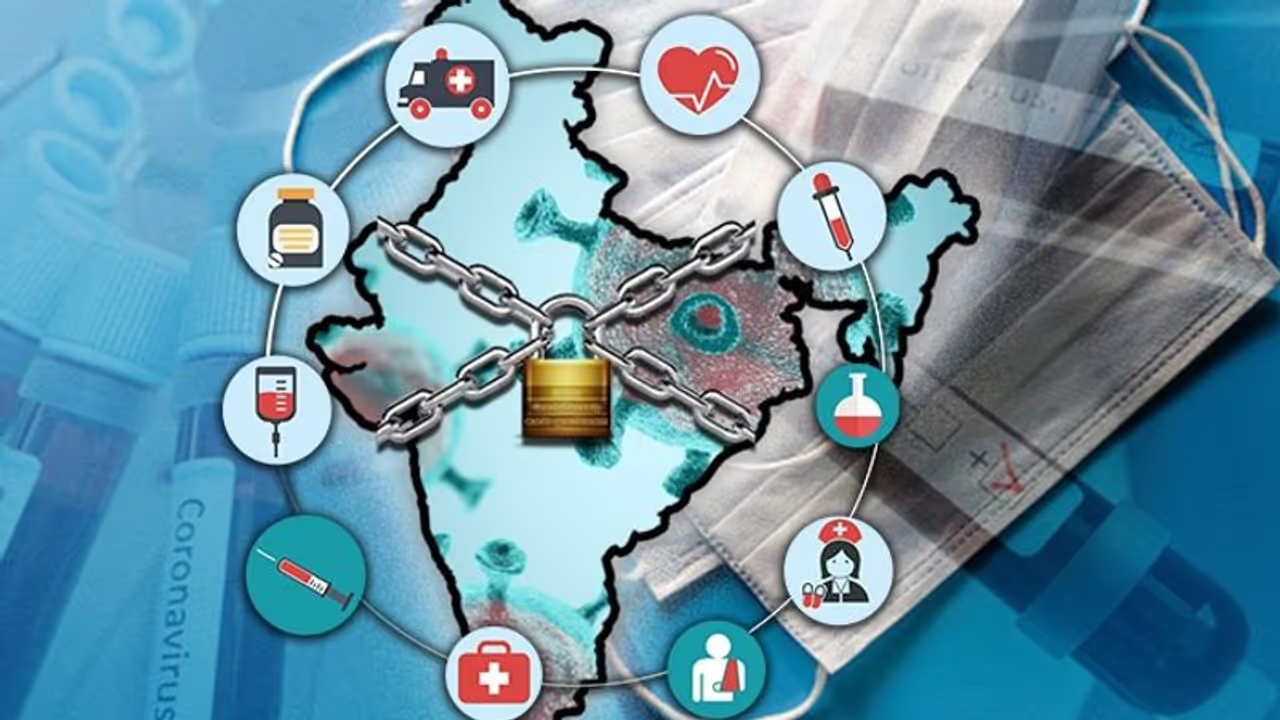Bengaluru City Police have now issued e-passes to e-commerce delivery agents to commute during the 21-day COVID-19 lockdown, via an app. Passes for “emergency travel and performing volunteer services (food/ration/distribution)” will also be issued through the app, Hemant Nimbalkar, IGP and ACP (Administration) had said.
Bengaluru: The coronavirus pandemic has left the world to define what "emergency services" are and list out the “essential services” we really cannot do without.

Centre and state governments in all states are determining what shops and services can remain open, while others remain shut in a bid to slow the spread of the virus.
They are also restricting citizens from leaving their homes. Stay home orders or guidelines have affected more than one-fifth of the world’s population.
E-passes are now being issued through the KSP Clear Pass all for all divisions in Bengaluru. The app, KSP CLEAR Pass, went online on March 29.
Bengaluru City Police have now issued e-passes to e-commerce delivery agents to commute during the 21-day COVID-19 lockdown, via an app. This was done through an app created by apartment management startup MyGate, called the Karnataka State Police CLEAR Pass.
These passes will only be valid in Bengaluru and will be issued by the Karnataka State Police. The police, through the app, will also issue passes to all other classes of people exempted from the 21-day lockdown by the home ministry.
Passes for “emergency travel and performing volunteer services (food/ration/distribution)” will also be issued through the app. Hemant Nimbalkar, IGP and ACP (Administration), had earlier tweeted that online passes will be issued from March 29.
This has left many contemplating an existential question: What, really, is essential and what are the emergency services? Here's a detailed list of what is an essential and emergency service.
1. Offices Of the government Of India, its autonomous/subordinate offices and public corporations shall remain closed.
Exceptions:
Defence, central armed police forces, treasury, public utilities (including petroleum, CNG, LPG, PNG), disaster management, power generation and transmission units, post offices, National Informatics Centre, Early Warning Agencies.
2. Offices of the State/Union Territory governments, their autonomous bodies, corporations, etc. shall remain closed.
Exceptions:
Police, home guards, civil defence, fire and emergency services, disaster management, and prisons. District administration and Treasury Electricity, water, sanitation, municipal bodies - Only staff required for essential services like sanitation, personnel related to water supply etc.
The above offices (Sl. No 1 & 2) should work with minimum number of employees. All other offices may continue to work-from-home only.
3. Hospitals and all related medical establishments, including their manufacturing and distribution units, both in public and private sector, such as dispensaries, chemists and medical equipment shops, laboratories, clinics, nursing homes, ambulance etc. will continue to remain functional. The transportation for all medical personnel, nurses, para-medical staff, other hospital support services be permitted.
4.Commercial and private establishments shall be closed down.
Exceptions:
Shops, including ration shops (under PDS), dealing with food, groceries, fruits and vegetables, dairy and milk booths, meat and fish, animal fodder. However, district authorities may encourage and facilitate home delivery to minimize the movement of individuals outside their homes. Banks, insurance offices, and ATMs. Print and electronic media telecommunications, internet services, broadcasting and cable services. IT and IT enabled services only (for essential services) and as far as possible to work from home. Delivery of all essential goods including food, pharmaceuticals, medical equipment through e-commerce.
5. Industrial Establishments will remain closed.
Exceptions:
a. Manufacturing units of essential commodities
b. Production units, which require continuous process after obtaining required permission from the state government
6. All transport services air, railways, roadways will remain suspended.
Exceptions:
a. Transportation for essential goods only
b. Fire, law and order and emergency services
7. Hospitality services to remain suspended
Exceptions:
a. Hotels, homestays, lodges and motels which are accommodating tourists and people stranded due to lockdown shall be open. Medical and emergency staff, air and sea crew to operate
b. Establishments used, earmarked for quarantine facilities
8. All educational, training, research. coaching institutions etc. shall remain closed.
9. All places of worship shall be closed for public. No religious congregations will be permitted, without any exception.
10. All social, political, sports, entertainment, academic, cultural, religious functions/ gatherings shall be barred.
11. In case of funerals, congregation of not more than 20 persons will be permitted.
12. All persons who have arrived into India after February 15, 2020 and all such persons who have been directed by health care personnel to remain under strict home/institutional quarantine for a period as decided by local health authorities, failing which they will be liable to legal action under IPC section 188.
Wherever exceptions, the above containment measures have been allowed. The organisations/employers must ensure necessary precautions against COVID-19, as well as social distance measures, as advised by the health department from time to time.
In order to implement these containment measures, the District Magistrate will deploy Executive Magistrates as Incident Commanders in their respective local jurisdictions and it will be their responsibility for the overall implementation of these measures in their respective jurisdictions.
All other line department officials in the specified area will work under the directions of these incident commander. The incident commander will issue passes for enabling essential movements as explained.
